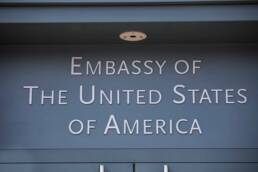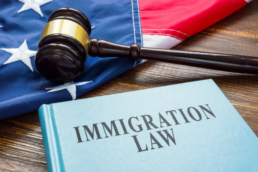Direct Consulate Filing (DCF) is an expedited process through which a United States citizen living overseas can petition the government for an immigrant visa for his or her immediate relatives. DCF requires that, instead of sending an I-130 petition back to the United States, the citizen sends it to a U.S. Embassy or Consulate in the country in which he or she is residing. It is important to note that this procedure is not offered at all consulates and embassies and to date, the government has not issued a list of available consulates that offer this service.
The DCF requirements are modest. In order to file a Form I-130 Petition through DCF, the Petitioner must have U.S. Citizenship and have lived abroad for a minimum of six months. DCF may also be available in extenuating circumstances such as members of the military facing deployment, emergency situations, situations involving the health or safety of the petitioner, and when it is in the national interest of the U.S.
Ultimately, the U.S. Embassy or Consulate handles the visa petition directly and decides the immigrant’s eligibility for a green card. This is the advantage of DCF: I-130 applications are handled directly by a U.S. Embassy or Consulate. No paperwork needs to be handled by the United States Citizenship and Immigration Services (USCIS), which reduces the wait time from a year or more, down to as little as three months or even a few weeks. The reason for the reduced time frame is that the application does not need to go to the same lengths as the extensive applications that are submitted to USCIS.
The DCF process is straightforward. First, the petitioner submits an I-130 application, by mail, courier or in person. The I-130 application is then adjudicated at the Embassy or Consulate, at which point, the beneficiary must submit Packet 3 to the consulate. Packet 3 is a portion of the I-130 application that includes identifying documentation from the beneficiary. Having received the completed I-130 application, the Consulate or Embassy will schedule an interview with the beneficiary, at which the petitioner need not be present. Barring any hiccups or roadblocks, the beneficiary is granted an immigrant visa and is finally allowed to enter the United States.
DCF is more convenient, for both petitioners and beneficiaries living outside of the United States, than the traditional method of submitting I-130 forms. The DCF procedure is almost entirely the same for petitioners and beneficiaries, but the outcome is reached in a fraction of the amount of time.
If you have questions on applying for a green card for a family member, be sure to contact Berardi Immigration Law to set up a consultation with one of our attorneys today!
Ready to have Berardi on your side?
Whether you’re a business looking to hire or a professional hoping to relocate, immigration law can be complicated. But you don’t have to do it alone. Put our experience to work for you.



